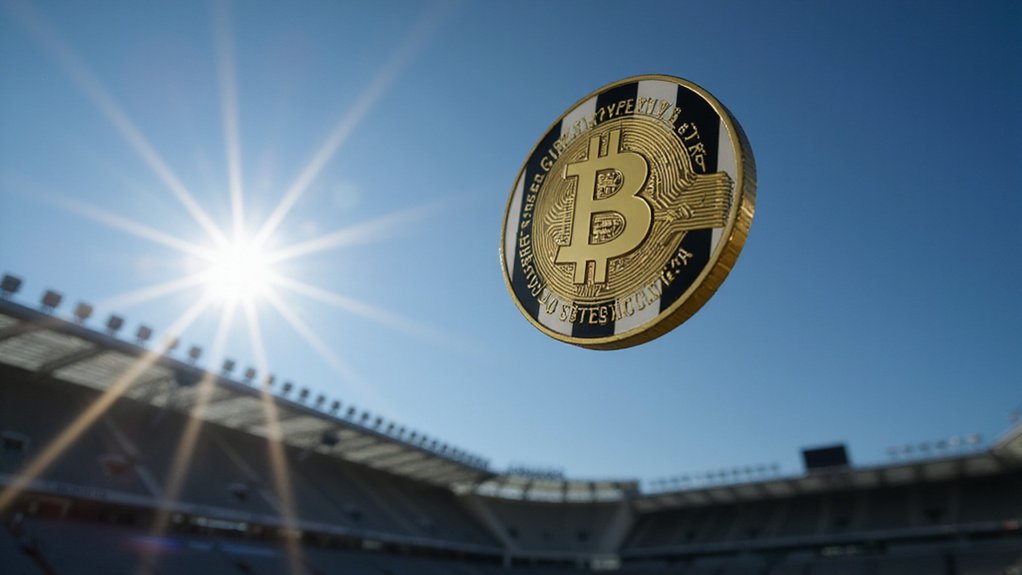The cryptocurrency exchange WhiteBIT has secured a three-season partnership with Italian football giant Juventus, positioning itself as the club’s official sleeve sponsor and cryptocurrency exchange partner through 2028—a deal that immediately sent ripples through both the digital asset markets and the increasingly crowded sports sponsorship landscape.
Starting with the FIFA Club World Cup 2025, the WhiteBIT logo will grace Juventus’ jersey sleeves, transforming every match into a billboard for cryptocurrency adoption among football’s global audience.
Market participants responded predictably to the announcement, with WhiteBIT’s token experiencing notable fluctuations as investors processed the implications of this high-profile association.
The partnership represents more than mere branding—it’s a calculated move to enhance credibility in an industry where legitimacy remains perpetually under scrutiny (and for good reason, given crypto’s colorful history of spectacular implosions).
For Juventus, the arrangement aligns with broader digital transformation objectives while potentially generating significant undisclosed revenue streams.
The club’s commitment to innovation finds expression through exclusive digital content and enhanced fan engagement initiatives, though whether football supporters genuinely crave cryptocurrency integration remains an open question.
Nevertheless, the partnership positions Juventus competitively within sports sponsorship’s evolving ecosystem, where traditional corporate partnerships increasingly yield ground to blockchain-based alternatives.
WhiteBIT’s strategic calculus appears sound: associating with a prestigious football institution theoretically legitimizes the platform while expanding its user base beyond crypto enthusiasts.
The stated goal of making cryptocurrency more accessible sounds noble, though accessibility often proves inversely correlated with complexity in digital asset markets.
Enhanced visibility through Juventus’ global reach could indeed attract new platform users, potentially boosting token demand through increased utility.
The broader implications extend beyond this singular partnership, reflecting cryptocurrency exchanges’ growing appetite for sports sponsorships as differentiation mechanisms in an increasingly saturated market. This trend occurs as the crypto landscape shifts from speculation to tangible utility, with exchanges seeking legitimacy through mainstream partnerships.
While financial terms remain undisclosed, the three-season commitment suggests substantial mutual confidence in crypto’s sporting future. The partnership replaces Azimut as the previous sleeve sponsor, marking a shift from traditional financial services to cryptocurrency branding on Juventus’ jerseys.
According to Juventus CEO Maurizio Scanavino, this collaboration represents a shared commitment to technological innovation that will create new opportunities for fan engagement. Whether this optimism proves justified depends largely on regulatory developments, market stability, and—perhaps most critically—whether football fans actually embrace cryptocurrency integration or view it as yet another commercialization intrusion into their beloved sport.








